Hui-Ru Ho
SET-PAiREd: Designing for Parental Involvement in Learning with an AI-Assisted Educational Robot
Feb 24, 2025Abstract:AI-assisted learning companion robots are increasingly used in early education. Many parents express concerns about content appropriateness, while they also value how AI and robots could supplement their limited skill, time, and energy to support their children's learning. We designed a card-based kit, SET, to systematically capture scenarios that have different extents of parental involvement. We developed a prototype interface, PAiREd, with a learning companion robot to deliver LLM-generated educational content that can be reviewed and revised by parents. Parents can flexibly adjust their involvement in the activity by determining what they want the robot to help with. We conducted an in-home field study involving 20 families with children aged 3-5. Our work contributes to an empirical understanding of the level of support parents with different expectations may need from AI and robots and a prototype that demonstrates an innovative interaction paradigm for flexibly including parents in supporting their children.
"It's Not a Replacement:" Enabling Parent-Robot Collaboration to Support In-Home Learning Experiences of Young Children
Mar 20, 2024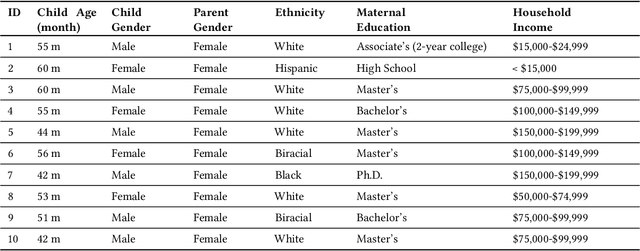
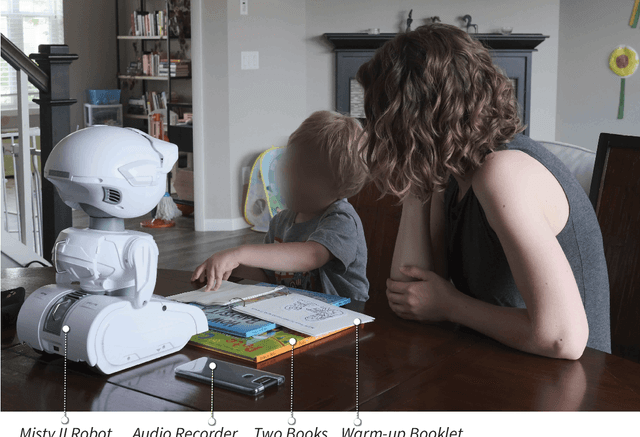
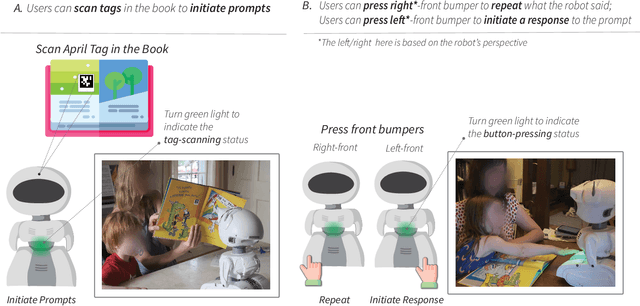
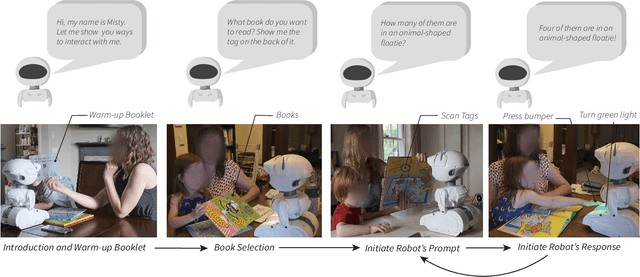
Abstract:Learning companion robots for young children are increasingly adopted in informal learning environments. Although parents play a pivotal role in their children's learning, very little is known about how parents prefer to incorporate robots into their children's learning activities. We developed prototype capabilities for a learning companion robot to deliver educational prompts and responses to parent-child pairs during reading sessions and conducted in-home user studies involving 10 families with children aged 3-5. Our data indicates that parents want to work with robots as collaborators to augment parental activities to foster children's learning, introducing the notion of parent-robot collaboration. Our findings offer an empirical understanding of the needs and challenges of parent-child interaction in informal learning scenarios and design opportunities for integrating a companion robot into these interactions. We offer insights into how robots might be designed to facilitate parent-robot collaboration, including parenting policies, collaboration patterns, and interaction paradigms.
Designing Parent-child-robot Interactions to Facilitate In-Home Parental Math Talk with Young Children
May 04, 2023


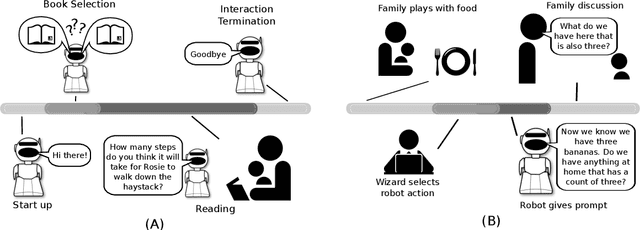
Abstract:Parent-child interaction is critical for child development, yet parents may need guidance in some aspects of their engagement with their children. Current research on educational math robots focuses on child-robot interactions but falls short of including the parents and integrating the critical role they play in children's learning. We explore how educational robots can be designed to facilitate parent-child conversations, focusing on math talk, a predictor of later math ability in children. We prototyped capabilities for a social robot to support math talk via reading and play activities and conducted an exploratory Wizard-of-Oz in-home study for parent-child interactions facilitated by a robot. Our findings yield insights into how parents were inspired by the robot's prompts, their desired interaction styles and methods for the robot, and how they wanted to include the robot in the activities, leading to guidelines for the design of parent-child-robot interaction in educational contexts.
 Add to Chrome
Add to Chrome Add to Firefox
Add to Firefox Add to Edge
Add to Edge